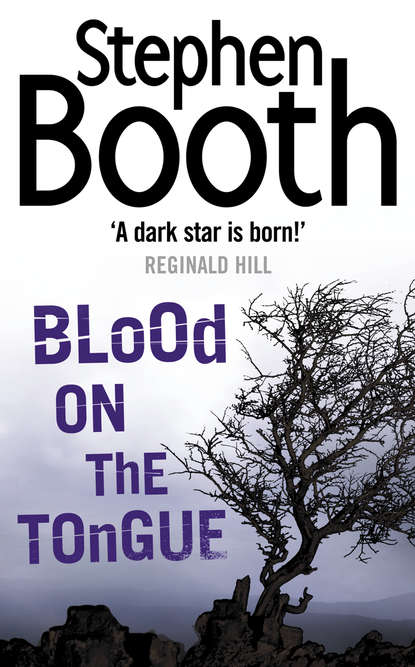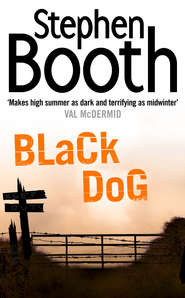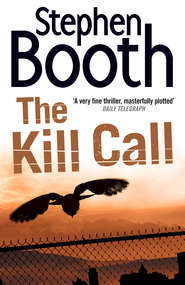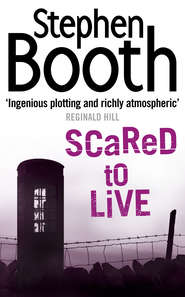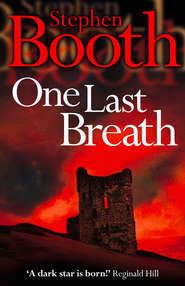По всем вопросам обращайтесь на: info@litportal.ru
(©) 2003-2024.
✖
Blood on the Tongue
Автор
Год написания книги
2019
Настройки чтения
Размер шрифта
Высота строк
Поля
‘Looked after him and gave him somewhere to stay.’
‘Knowing who he was? They must have heard later that there had been an air crash. Why would they keep him? Why not hand him over to the authorities? If he was injured, they would at least get medical treatment for him.’
‘I don’t know why,’ said Morrissey stubbornly. ‘I do know that the man who hitched a lift on the A6 was not my grandfather. I believe that man was an army deserter who had gone absent without leave from the transport depot at Stockport. He was a man named Fuller. The police arrested him later at his parents’ house in Stoke-on-Trent.’
‘But your grandfather?’ asked Cooper. ‘What makes you think he stayed in this area? It seems very unlikely.’
‘This is what makes me think so,’ said Morrissey. She pulled a plastic wallet from her briefcase. Cooper could see that it contained a medal on a red-and-gold ribbon. The medal was perfectly polished, and it gleamed in the fluorescent lights, flashing in their eyes as if sending a message across the decades.
‘What is it?’
‘It’s a Royal Canadian Air Force Distinguished Flying Cross,’ said Morrissey. She turned the medal over in her hands. ‘It arrived at my grandmother’s old home in Ottawa one day during the summer. There was a note with it, too. It was addressed to my mother, and it just said: “Remember your father, Pilot Officer Danny McTeague.”’
Cooper leaned closer to look at the medal. ‘This is your grandfather’s medal? But where did it come from?’
‘All we know,’ said Morrissey, ‘is that it was posted here, in Edendale.’
6 (#ulink_531422bd-beb7-594a-87fa-fbcaa2f6fc23)
The body from the Snake Pass had arrived in the mortuary at Edendale General Hospital, where it would be kept on ice, at least until it could be identified and somebody claimed it. When Diane Fry had driven up to the mortuary, she had left DC Murfin in the car, where he was no doubt adding to the pile of toffee wrappers on her floor.
Inside the mortuary, it was warmer than out on the street. The air smelled better, too – it was full of disinfectants and scented aerosols to suppress the odours of body fluids and abdominal organs.
‘We don’t get many of these now,’ said Mrs Van Doon. ‘People carry all sorts of identification with them these days, don’t they? But if not, we can usually match up their fingerprints or dentition, or their DNA. No luck your end so far, I take it? Nothing we can match him to?’
‘Nothing,’ said Fry. ‘We’re putting appeals out, of course. But at present his description doesn’t match the details of any missing person we know of.’
‘So maybe no one’s noticed he’s missing yet.’
‘There seem to be a lot of people who go around not noticing things,’ said Fry.
The pathologist gave her a brief, quizzical look. ‘He doesn’t look like the average missing person to me,’ she said. ‘He’s too clean and well dressed, for a start. Those shoes he was wearing are expensive.’
‘I know. His shoes and the rest of his belongings are our best hope. They’re distinctive.’
‘He wasn’t a hiker, not wearing those on his feet. The snow has ruined them.’
‘No, he wasn’t a hiker.’
‘A stranded motorist, perhaps? Trying to walk back to civilization from an abandoned car?’
‘That’s possible. All the cars found so far have been matched up with living owners, but there are a few side roads the snowploughs haven’t reached yet.’
‘You don’t sound convinced of that, either.’
‘No, I’m not.’
‘Any particular reason?’
‘Look at him. Look at his clothes. You pointed out yourself how expensive they are. Would he really set off walking in the snow dressed like that? With no coat? Why didn’t he stay where he was until he was found? It’s not exactly the Antarctic – somebody would have come across him within twenty-four hours at the most. And why didn’t he phone for help? For God’s sake, every schoolkid has a mobile phone these days. I can’t believe a man like this didn’t have one.’
‘You’re right, I suppose. I should restrict myself to the physical evidence and let you deal with the psychology.’
‘I didn’t mean that,’ said Fry, noting the pathologist’s defeated air.
‘It’s all right.’
‘And another thing. Are we supposing that he set off walking down the road and that the first people who came along were some opportunist muggers who just happened to be driving over the Snake Pass in a blizzard?’
‘I couldn’t possibly say.’
‘I’ll take that as a no.’
Fry glanced at the body. It had been cleaned and covered up. But the face of the man was still visible. He was aged about thirty, she supposed, a little thick about the neck but otherwise in reasonable shape. His hair was dark, cut short and tidy, with a few flecks of grey at the temples. The stubble growing on his cheeks looked wrong; he was a man who would normally have been close-shaven. She looked at his hands. They were strong, but free of calluses, and the nails were trimmed.
‘What about the injuries?’ she said.
‘There is one major ventral wound to the abdomen, which opened up the abdominal cavity and the lateral muscles and almost severed his left arm above the elbow.’
‘That was the blade of the snowplough, presumably?’
‘All I know is that it was a sharp metal object about ten feet wide and weighing approximately half a ton,’ said Mrs Van Doon.
‘Right.’
‘There are a number of abrasions on the head, face, back and legs, probably caused by the body being dragged along the road surface for a short distance. There’s plenty of bruising, and he also has two cracked ribs on the right side of his chest from a fall.’
‘A fall?’
‘All right, look. From the position in which he was found, I’d say that particular damage might have been caused by him being dropped by the snowplough on to some small rocks by the side of the road. He was found lying half on the rocks, and half off. A few inches to either side and he would have had a much easier landing – on snow or soft ground.’
‘I don’t suppose it made much difference to him by then.’
‘Not a bit. All the injuries I have mentioned were suffered post-mortem.’
‘After he was dead.’
‘That’s usually what post-mortem means. Otherwise, it would come as a bit of a shock to my customers when I remove their internal organs.’
‘The one million pound question, then …’ said Fry.
‘What did kill him, you mean?’
‘Of course.’
‘I’ll need to do some more tests,’ said the pathologist. ‘Contrary to your inspector’s impression, I do actually have the services of a modern laboratory to call on.’
‘But …?’





